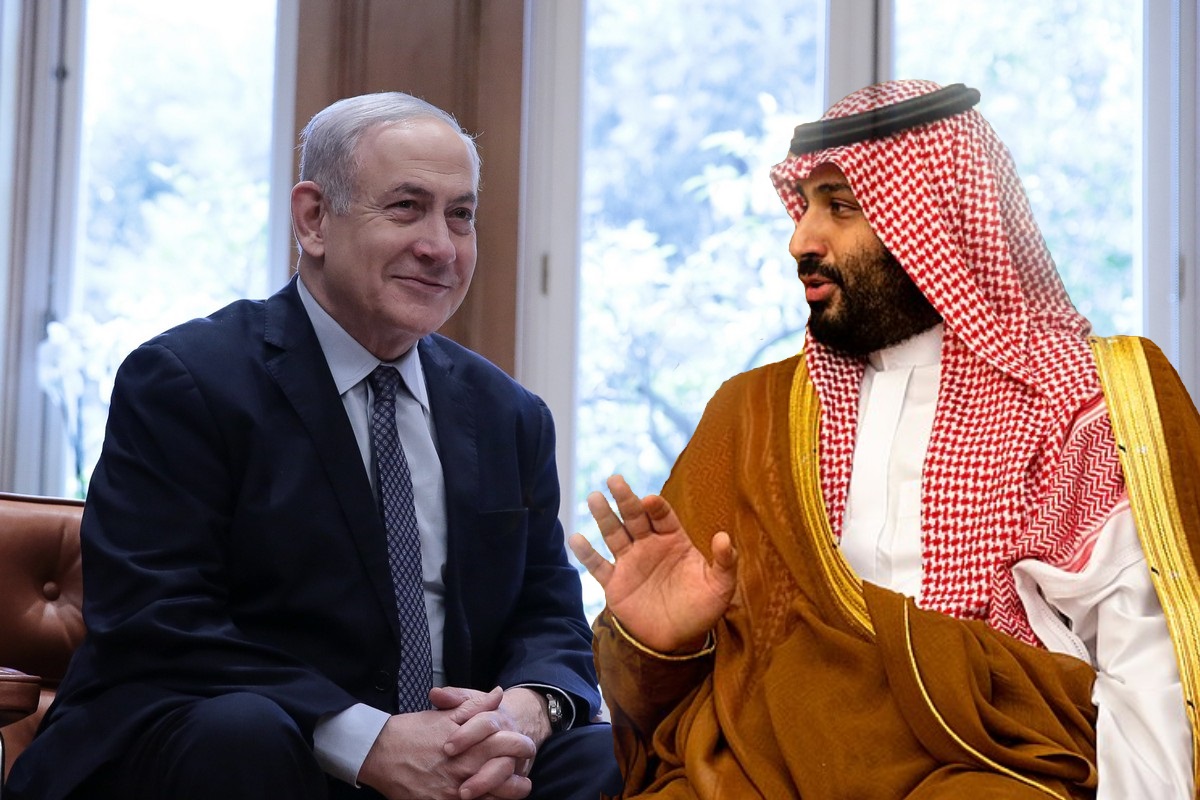Watan-Saudi Arabia continues to promote normalization with the Israeli occupation through various statements, confirming its intention to recognize Israel and standing behind a formal commitment to resolving the Palestinian issue. This includes claims of its commitment to the “two-state solution,” which has been rejected by Tel Aviv, according to multiple official statements.
While Saudi officials intensify their discourse about the desire for normalization with the occupation, emphasizing that it “will not be at the expense of the Palestinians,” the Israeli response serves as a rebuke to Riyadh’s claims of commitment to the Palestinian cause. Prime Minister Benjamin Netanyahu confirmed in a recent press conference that he informed the United States of his opposition to the establishment of a Palestinian state and that he seeks to assert Israeli control over the entire region, not just the establishment of a Palestinian state.
This stance deals a significant blow to Saudi Arabia’s symbolic claims, attempting to prevent escalating anger over its changing internal and external policies, which align entirely with Western and Zionist agendas. It underscores that affirmations of the commitment to the two-state solution are merely a face-saving measure.
At a time when Gaza is under bombardment and its people are besieged, the kingdom insists on organizing entertainment events and places great emphasis on avoiding any expressions of solidarity or mentioning the name “Palestine” in any activity seeking normalization with the occupation before and after the brutal war.
يبرر التطبيع السعودي القادم مع الكيان الصهيوني المحتل
اسمع ماذا يقول هذا “شيخ الترفيه”pic.twitter.com/i8nDUe6W80
— بلقيس الحريزي (@x_blq_h_) January 19, 2024
The two-state solution: a recurring Saudi façade
Saudi officials are keen to repeat the facade of the normalization condition “after Israel takes tangible steps to establish the foundations of the two-state solution” or link it to the existence of a sovereign Palestinian state with its capital in East Jerusalem. Former Saudi intelligence chief Turki al-Faisal mentioned in televised statements with a Saudi channel, “Our leadership’s positions are firm regarding the Palestinian issue, and the solution must begin with the establishment of a sovereign Palestinian state with its capital in East Jerusalem, enjoying all the characteristics of a state.”
A few weeks ago, the Saudi ambassador to London, Khalid bin Bandar bin Abdulaziz, reiterated the facade in an interview with CNN, stating that Saudi Arabia “remains interested in normalization with Israel after the end of the war on Gaza,” repeating the mantra: “This will not be at the expense of the Palestinians.” Saudi Foreign Minister Prince Faisal bin Farhan affirmed during a discussion session at the World Economic Forum in Switzerland the kingdom’s commitment to recognizing Israel if the Palestinian issue is resolved.
The Saudi ambassador to the United States, Reema bint Bandar Al Saud, also mentioned that the kingdom does not consider normalization as the essence of its policy but rather security and peace. She stated that the solution to the Israeli-Palestinian conflict is the “two-state solution.”
🔴ترجمت لكم من العبرية إلى العربية
روعي كيس محلل الشؤون العربية للقناة 11 الإسرائيلية يتحدث عن فرص #التطبيع السعودي الإسرائيلي،وعن المبادرة #السعودية لإنهاء الحرب على غزة وإقامة دولة فلسطينية التي ضمن خطتها لنشر الهدوء من اليمن إلى غزة . pic.twitter.com/IuaEBBfZZW
— اسرائيل من الداخل-أحمد ابو غوش (@from7october) January 18, 2024
Deceptive methods to push through normalization
According to experts and analysts cited by the newspaper “Sout Al Nas,” Saudi Arabia’s talk about the two-state solution and promoting a return to the negotiation path are merely deceptive methods and sedatives aimed at pushing through normalization with some Arab countries.
Omani academic Dr. Talib Al Maamari mentioned that U.S. President Joe Biden speaks on behalf of Israel and its agreements with countries to let everyone know that the head of Zionism is America, and the Zionist state in the East is nothing but an instrument of discord and a means of occupation for all Arab countries.
Palestinian writer and political analyst Yaser Al-Za’atreh confirmed that the new game played by President Biden, talking about the two-state solution after contacting Netanyahu, aims primarily at Saudi normalization and the resumption of the so-called “peace process.”
Saudi activist and researcher Hala Al-Dosari sees that the true judgment of the Saudi position lies in analyzing political stances through media, private visits, security coordination in intelligence files, and the security apparatus’ support for counter-revolutions alongside Abu Dhabi.
From these indications, according to Al-Dosari, “the arrest of Palestinian figures in the Gulf and the liquidation of some of them, the opposition to media support for the Palestinian people, and Mohammed bin Salman’s meeting with the Zionist lobby in New York, attempting to promote his leadership to the American Zionist lobby” are apparent.
